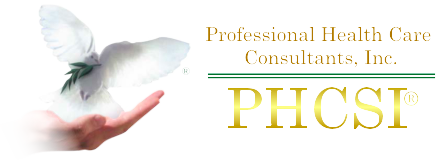Fore more inquiries, please call
- 888-534-8082 / 714-554-0878 / 949-681-8383
Fore more inquiries, please call
 Some causes for back pain originate in the skeletal and muscular structures. Other causes originate in various organs or even in remote structures of the body.
Some causes for back pain originate in the skeletal and muscular structures. Other causes originate in various organs or even in remote structures of the body.
Obesity is a common cause of back ache, causing poor posture and thus straining and fatiguing the structures of the back. Pain in the back is often referred from structures within the pelvis. Thus it occurs during menstruation, in pregnancy, and disease of the pelvic organs. Back pains commonly occur in kidney disease, or they may be early symptoms of infectious disease. It can result from nervous fatigue. Diseases which cause partial destruction of the vertebrae cause backache.
Osteoarthritis of the spine is another cause. Fibrositis involving the muscles and ligaments of the back can be very painful. Fractures involving the back can be very painful as well. Traumatic involvement of the intervertebral disks can produce pain in the back, arms or legs.
Intervertebral Disk Involvement. The vertebral column (spinal column) is the mainstay of the skeleton. It is therefore subject to tremendous mechanical forces, as in lifting, jumping, twisting, and carrying heavy weights. Between each vertebra and its neighbour there is a cushion-like disk of fibrocartilage (an intervertebral disk). It is these disks, by way of their resiliency, that permit bending and twisting movements of the vertebral column. They also serve as shock absorbers.
Also between the bony processes of each vertebra and its neighbour there emerges a pair of spinal nerves – nerves leading from the spinal cord to some part of the body.
Under recurring pressure the substance of the intervertebral disks may deteriorate and permit a portion of the disk substance to push its way against the root of an emerging spinal nerve, causing nerve injury and interfering with its function. This condition is often called a “slipped disk” or a “herniated disk.” The problem may occur at any level in the vertebral column, but most commonly in the lower back where the nerves emerge that go to the thighs, legs and feet. Often the nerve involved is the sciatic nerve, which passes down the back of the thigh. The painful symptoms occurring are often called “sciatica.” A “slipped disk” is the most common, but not only the cause of sciatica.
Low back pain or irritation of the involved nerve root is one of the earliest symptoms of a slipped disc. At this stage, rest will generally result in less pain because the disc works back to its more normal position. However, if it does not slip back completely, the nerve root irritation continues and causes pain down the back of the leg, sometimes numbness, and the kind of discomfort commonly called “sciatica.” The continued pressure in the sciatic nerve causes intense pain which is aggravated by back movements, sneezing, coughing, or other abrupt motion. The outer surface of the root and toes may tingle or become numb. When the patient stands he tilts his back. Continued nerve pressure causes weakness and atrophy of the muscles, and definite loss of sensation. Paralysis can result from chronic pressure on the nerve, and the patient cannot use his bladder and bowel.
The sciatic pain from the buttock down the length of the affected leg can become so excruciating that motion becomes severely limited, if not impossible, and the patient is bedridden.
The pain, usually limited to one side is aggravated by coughing, sneezing, going to the toilet, movement and weight bearing. Often the muscles go into spams, and some of them may be weakened. Usually symptoms disappear in response to treatment.
Complications
These depend on the extent of nerve damage caused by the pressure of the displaced disc. The paralysis and interference with bladder and bowel functions are serious problems. In addition to the further complications they may bring, they can prevent the patient from working or from carrying on other normal activities.
Prevention (or lessening of impact)
Any case of low back pain or sciatica should be thoroughly investigated to rule out the possibility of a herniated spinal disc. The diagnosis can generally be made from just a physical examination, but sometimes X-ray or spinal canal studies are necessary.
WHAT TO DO
This information was taken from the New Illustrated Medical and Health Encyclopedia and Modern Medical Guide.

Professional Health Care Consultants, Inc., also known as Professional Health Care Services, is a family-owned caregiver referral and consulting business. We specialize in managing and developing small businesses in the Home-Care Industry for non-medical, custodial and around-the-clock care. We offer caregivers, families and their loved ones all different services and several options that are affordable for them.
PHCSI and “Your Loved Ones are Our Loved Ones” are Registered Trademarks assigned to Professional Health Care Consultants, Inc.
COPYRIGHTS © 2020 Professional Health Care Services. All Rights Reserved.